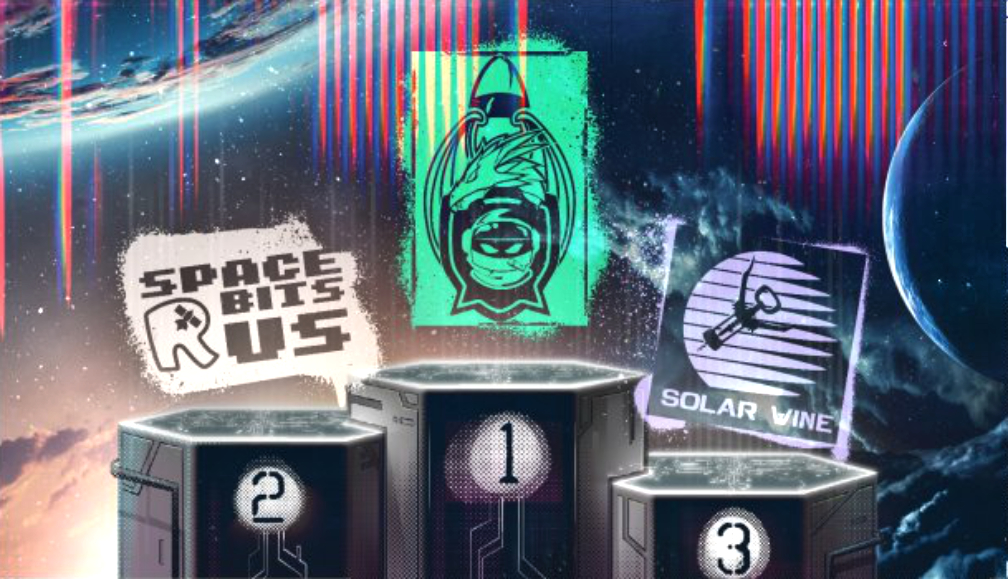
Eight of the world’s most accomplished, capture-the-flag, cyber security research teams competed in the unique, space-focused, hacking competition finals of the Hack-A-Sat 3, Oct. 22-23.
Organized by the Department of the Air Force, along with the security research community, Hack-A-Sat is an opportunity for a global community of cyber security researchers to hack and learn in an open and collaborative online environment with the goal of improving the security and resilience of space systems.
“There are many benefits to [Hack-A-Sat],” said Col. Kenneth Decker, director of Engineering, Space Domain Awareness and Combat Power (SDACP); and Battle Management Command, Control, and Communications (BMC3). “It reminds us of the importance and the urgency to bake in cyber resilience during the development phase of our space systems. As the world now relies on satellites for everyday living, our daily activities are actually beginning to be more and more at risk. This is because there are bad actors who are always looking for ways to exploit both ground- and space-based systems for their personal or strategic gains. It’s a global issue and we’ve got to solve it.”
Underscoring the importance of this government-security researcher community collaboration, the 2022 final event closed with a public announcement of the winners with DEF CON founder, Jeff Moss.
The winners of the 2022 Hack-A-Sat 3 competition are:
- $50,000 1st place: Poland Can Into Space
- $30,000 2nd place: SpaceBitsRUs
- $20,000 3rd place: Solar Wine

The top eight finishers from the more than 800 teams who competed in the Hack-A-Sat 3 qualification round in May 21-22 vied for the top award in the finals.
The final event was an attack/defend style, capture-the-flag competition. The teams faced complex challenges on topics including spacecraft operations, ground station access and reverse engineering. Game play took place in a virtual environment, using digital twin technology. The game environment was based on Moonlighter, a satellite being designed and built for the purposes of advancing security researcher knowledge and skills in securing space systems.
Moonlighter is scheduled to launch in 2023 in time to host the Hack-A-Sat 4 final event – the first truly, on-orbit, capture-the-flag competition in space.
“We had real fun playing this year’s Hack-A-Sat finals! Big thanks to the organizers for making the most entertaining and life-like edition so far,” the Poland Can Into Space team members said, summing up the first place winner’s experience in this year’s competition.“We are really excited about the competition next year featuring on-orbit hardware!”
Looking to the future, Moss expressed his hopes for how Hack-A-Sat and the community of security researchers who participated could help change and improve space security.
“I’m hoping that, with Hack-A-Sat you are going to show [what] hackers can do going from zero to a hundred miles an hour,” Moss said. “They haven’t really been exposed to this technology. But look what they’ve discovered. Look how they’ve repurposed it. And that is going to fundamentally change the conversation around satellites, smallsats, communications, whatever it is. And we get to be right in the middle of it, watching some of the world’s smartest people and teams tear this stuff apart.”
During the final event weekend, viewers tuned into the competition on hackasat.com for game updates, competition breakdowns and challenge explanations from capture-the-flag experts and game designers.
For more information about Hack-A-Sat and to view the Final Event broadcasts, access this direct link…
About the Organizers
The Air Force Research Laboratory (AFRL) is the primary scientific research and development center for the Department of the Air Force. AFRL plays an integral role in leading the discovery, development and integration of affordable warfighting technologies for our air, space and cyberspace force. With a workforce of more than 11,500 across nine technology areas and 40 other operations across the globe, AFRL provides a diverse portfolio of science and technology ranging from fundamental to advanced research and technology development. For more information, access this direct website link…
Space Systems Command is the U.S. Space Force field command responsible for rapidly developing, acquiring, equipping, fielding and sustaining lethal and resilient space capabilities. SSC mission capability areas include launch acquisition and operations, communications and positioning, navigation, and timing (PNT), space sensing, battle management command, control, and communications (BMC3), and space domain awareness & combat power. SSC is headquartered at Los Angeles Air Force Base in El Segundo, California.
